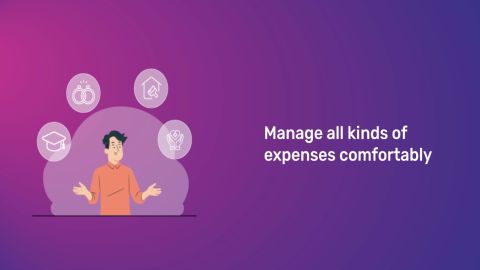In the realm of personal finance, obtaining a loan is a common practice for individuals seeking to fulfill various financial needs. However, before diving into the borrowing process, it's essential to understand the significance of the loan agreement. In this article, we'll delve into what a loan agreement entails, why it's crucial, who can be a party to such a contract, and the key elements you should be aware of. With a focus on personal loan offered by Bajaj Finance, let's unravel the intricacies of the loan agreement.
What is a loan agreement?
A loan agreement is a legally binding contract between a lender and a borrower that outlines the terms and conditions of a loan. This document serves as a formal agreement between the two parties, detailing the amount borrowed, the interest rate, repayment schedule, and any other pertinent terms agreed upon.
Why is a loan agreement important?
The loan agreement plays a pivotal role in the borrowing process for several reasons:
- Clarity and transparency: By documenting the terms of the loan in writing, the agreement ensures clarity and transparency for both the lender and the borrower. It minimizes the risk of misunderstandings or disputes arising during the loan.
- Legal protection: A properly drafted loan agreement provides legal protection to both parties by clearly defining their rights, obligations, and responsibilities. In the event of a dispute or default, the agreement serves as evidence of the agreed-upon terms.
- Enforcement of terms: Should the need arise, the loan agreement can be used to enforce the terms of the loan through legal channels. This ensures that both parties adhere to their respective obligations and commitments.
Who can be a party to a loan contract?
In a typical loan agreement, there are two primary parties involved:
- Lender: The lender is the individual or financial institution providing the loan amount to the borrower. : They may impose certain loan eligibility criteria and assess the borrower's creditworthiness before extending the loan.
- Borrower: The borrower is the individual or entity receiving the loan funds from the lender. They are responsible for repaying the borrowed amount according to the terms outlined in the loan agreement.
Key elements of a loan agreement
While the specifics may vary depending on the type of loan and the lender's policies, key elements commonly found in a loan agreement include:
- Loan amount: The principal amount borrowed by the borrower.
- Interest rate: The personal loan interest rate accrued on the loan amount.
- Repayment terms: The schedule and method of repayment, including the frequency of payments and the duration of the loan.
- Default provisions: Conditions outlining the consequences of default, such as late payment fees or legal action.
Everything you need to know about personal loan agreement
When obtaining a personal loan from Bajaj Finance, you can expect a comprehensive loan agreement that covers all essential aspects of the borrowing arrangement. From the loan amount and interest rate to the repayment schedule and prepayment options, Bajaj Finance ensures transparency and convenience for its customers. By carefully reviewing and understanding the personal loan terms outlined in loan agreement, borrowers can make informed decisions and manage their finances effectively.
Conclusion
In summary, the loan agreement stands as a vital pillar in the borrowing journey, offering clarity, safeguarding, and providing enforceability for both lenders and borrowers. Whether contemplating a personal loan to address financial requirements, it is imperative to grasp the terms and responsibilities stipulated within the loan agreement. This document ensures transparency and legal recourse if needed, fostering trust and accountability between the involved parties. Before proceeding, take the time to thoroughly review and comprehend the terms laid out, empowering yourself with knowledge for a confident borrowing experience.
With a Bajaj Finserv Personal Loan, you can trust in a seamless borrowing experience backed by transparent and customer-friendly loan agreements.
Apply now and get the best deal on our personal loan.




